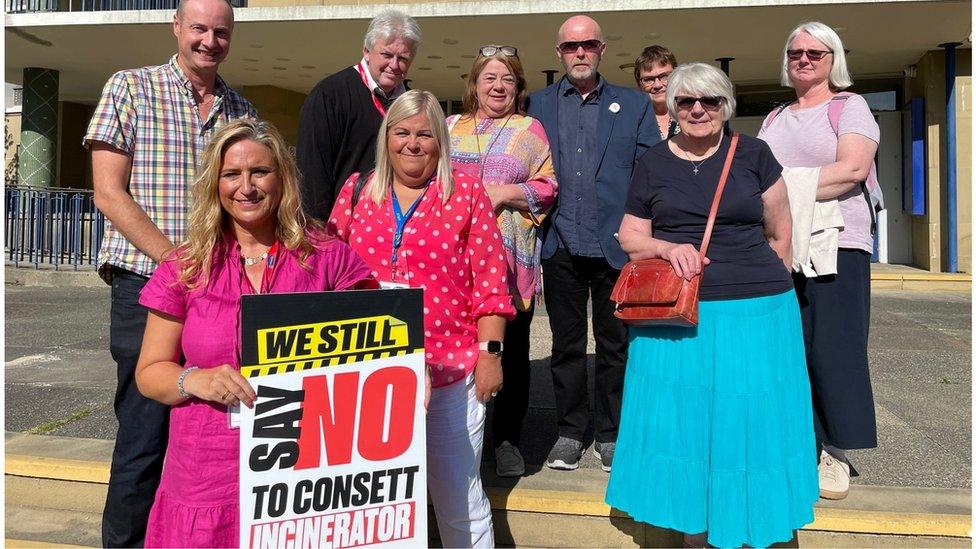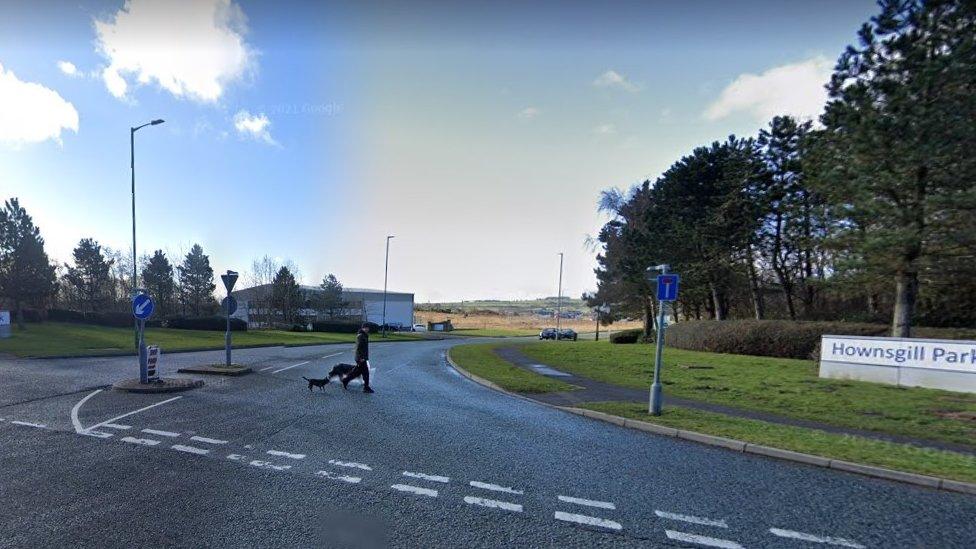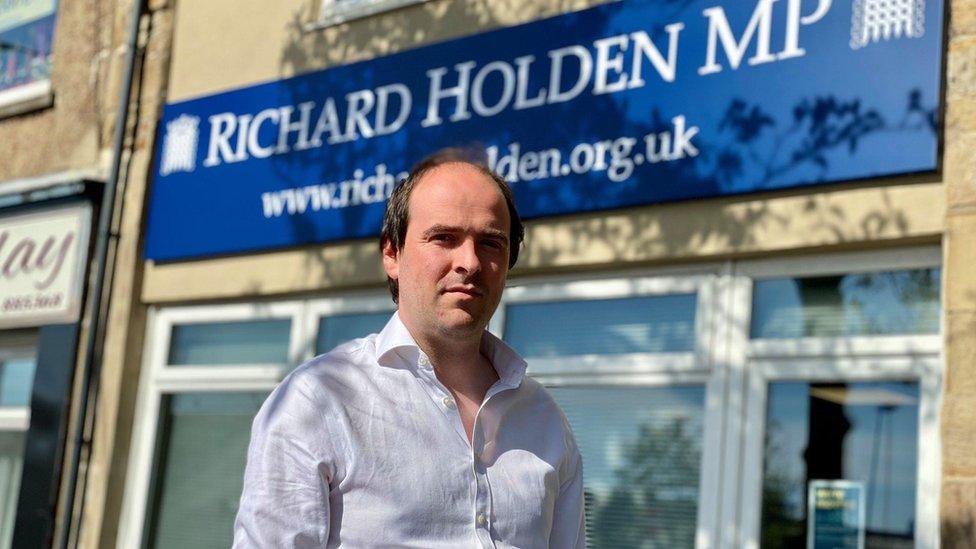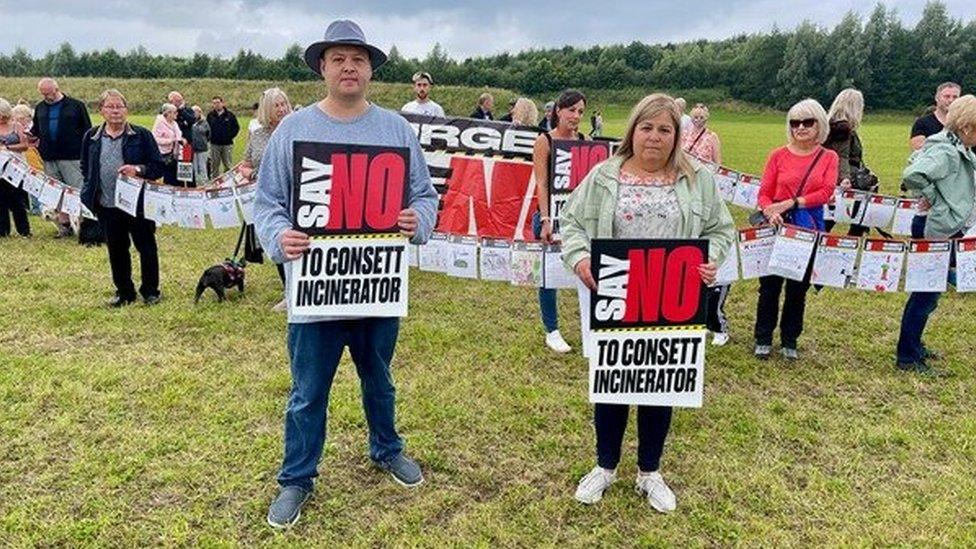Public inquiry opens on refused Consett incinerator plans
- Published

Campaign group chair Christine Thomas (front) said the incinerator would threaten Consett's "natural beauty"
Objectors to a proposed incinerator in Consett have told a public inquiry it threatens the area's "natural beauty".
The inquiry has opened into the proposals which would see waste turned into renewable energy at Hownsgill Industrial Estate.
The plans, which drew more than 3,500 objections, were unanimously rejected by Durham County Council in September.
Project Genesis is appealing against the decision, saying the development will generate heat and electricity.
If approved, the incinerator with a 164ft (50m) chimney stack would operate 24 hours a day.
The proposed site was part of the former Consett Steel Works, but objectors including Christine Thomas said the town was a "secret gem, a beautiful place to live" which had put its industrial past behind it.
Mrs Thomas, who is chair of the Say No To Consett Incinerator Community Campaign Group, said: "Why would anyone want the remnants and particles of industrial waste soiling the air and contaminating the town? Who would have such a dream for their town? Who would want a 50m chimney as a blight on this fabulous landscape?"
She was giving evidence to the Government-appointed inspector Stephen Normington, who opened the 12-day inquiry at Durham's County Hall.

Project Genesis says the incinerator will generate heat and electricity with proposed discounts for those nearby
John Barrett, representing Durham County Council, said the plan was refused because it would harm the special qualities of the nearby North Pennines area of outstanding natural beauty, the character and quality of the landscape and the Grade II listed 18th Century High Knitsley Farmhouse.
North West Durham Conservative MP Richard Holden told the inquiry he had received hundreds of letters and had dozens of surgery appointments, with more than 1,000 people completing a survey outlining their concerns.
Mr Holden said: "Consett and the surrounding area, especially around Weardale and the Derwent Valley, is emerging in tourism and hospitality with the Coast To Coast cycle route and many walks.
"It is a beautiful area. An incinerator would set back this progress at best and stop it at worst."

Richard Holden MP told the inquiry the incinerator plan would hinder Consett's progress as a tourist spot.
Andrew Tabachnik QC, representing Project Genesis, told the Local Democracy Reporting Service the scheme would provide waste management resources, save more than 500,000 tonnes of carbon dioxide and bring jobs and regeneration.
He told the inquiry: "The council should be encouraging and welcoming with open arms advantageous schemes such as the appeal scheme.
"Instead, it declines to take a realistic view as to the weight of public benefits the scheme would bring."
The inquiry continues.

Follow BBC North East & Cumbria on Twitter, external, Facebook, external and Instagram, external. Send your story ideas to northeastandcumbria@bbc.co.uk, external.
Related topics
- Published7 September 2021
